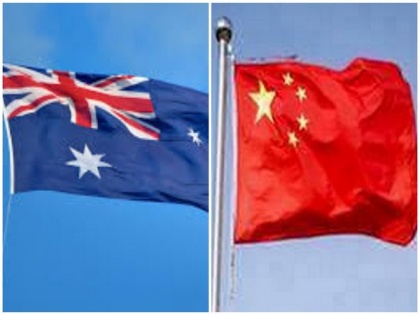'Deeply regrettable': China bars Australian diplomats from writer's espionage trial
By ANI | Published: May 27, 2021 06:58 PM2021-05-27T18:58:21+5:302021-05-27T19:05:07+5:30
Australian diplomats were denied access to the closed-door trial of Chinese-born Australian writer Yang Hengjun, who has been charged with espionage, on Thursday, amid rapidly souring ties between Beijing and Canberra.

'Deeply regrettable': China bars Australian diplomats from writer's espionage trial
Australian diplomats were denied access to the closed-door trial of Chinese-born Australian writer Yang Hengjun, who has been charged with espionage, on Thursday, amid rapidly souring ties between Beijing and Canberra.
On Thursday morning, Australia's Ambassador to China Graham Fletcher was prevented from watching the proceedings of Yang's trial, with the COVID-19 pandemic given as the reason, reported South China Morning Post (SCMP).
"This is deeply regrettable and concerning and unsatisfactory... We have had long-standing concerns about this case, including the lack of transparency, and therefore have concluded that it is an instance of arbitrary detention," he told reporters outside the court.
Fletcher further said consular officials had access to Yang last month, and would continue to provide support to him and his family.
Yang has been in detention for more than two years and if he is found guilty, which is likely given China's 99.9 per cent conviction rate, the Australian writer would be facing between 3 years in jail and life imprisonment.
Yang was detained in 2019 and later transferred to a facility in Beijing, where he was allegedly subjected to torture and interrogated hundreds of times.
His wife, Yuan Ruijuan, who is an Australian permanent resident, told Australian media that Chinese officials had prevented his lawyers from sharing information about the case with her as it involved national security.
The 56-year-old former Chinese diplomat and naturalised Australian citizen was first detained in China in 2011 but was released due to international pressure ahead of then Australian Prime Minister Julia Gillard's visit to Beijing.
Meanwhile, Chinese foreign ministry spokesman Zhao Lijian on Thursday said that comments made by Australian diplomats interfered with China's judicial sovereignty and Beijing seriously objected to that.
He further claimed that the Chinese judicial system had protected Yang's rights and allowed visits from the Australian embassy and had preserved other consular rights, SCMP reported.
Last week, Australian Foreign Minister Marise Payne said that Canberra had raised its concerns over the treatment of Yang and the "lack of procedural fairness in how his case has been managed", including depriving him of access to his family and allowing only limited access to legal representation, and the lack of evidence for the espionage charge.
"I very much hope that we have a transparent and open process. We're not interfering in China's legal system; the concerns we have raised are legitimate ones. But we do expect those basic international standards of justice to be met... We have not seen any explanation or evidence for the charges that have been brought against him," Payne said on Australian radio.
SCMP reported that in March, a letter written by Yang to his supporters in March was released by Australian media on Wednesday, where he said that the criminal charges were lodged against him to "take revenge" for his writings.
"I will face suffering and torture with resilience. Please explain to the people inside China what I did, and the significance of my writing to people in China," he said.
Relations between China and Australia have been in a downward spiral since April last year when Canberra infuriated Beijing by proposing an independent international inquiry into the origins of the COVID-19 pandemic.
Chinese-Australian journalist Cheng Lei, who worked for a Chinese state-run broadcaster in Beijing, has been detained in China since August on national security charges, and the last two accredited reporters for Australian media in mainland China fled the country over fears for their safety, SCMP further reported.
Foreign diplomats and journalists were also prevented from attending the trials in March of Canadians Michael Kovrig and Michael Spavor, both of whom were detained in December 2018, soon after the detention in Canada of Chinese businesswoman Meng Wanzhou. The verdicts in the trials have yet to be revealed to the public.
( With inputs from ANI )
Disclaimer: This post has been auto-published from an agency feed without any modifications to the text and has not been reviewed by an editor
Open in app